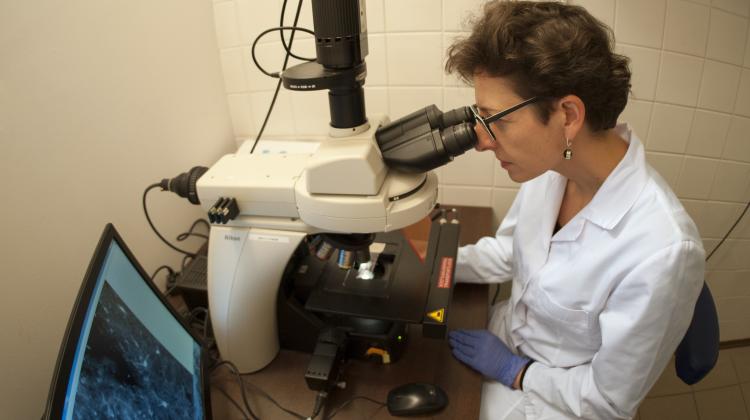Polish scientists investigate whether heating tobacco may be less harmful than burning it

Polish scientists are investigating whether heating tobacco instead of burning it - as in traditional cigarettes - may be less harmful to humans. Prof. Joanna Szczepanowska emphasises that people smoke and will smoke, which is why it is worthwhile to do research that may help them choose a less harmful form of smoking.
This involves the products in which tobacco is heated, not burned. In a conventional cigarette combustion process takes place at a temperature of approx. 800 degrees Celsius, and in the case of the "heat not burn" technology (such as IQOS) the aerosol is formed by heating tobacco to a temperature of approx. 280 degrees. This potentially produces less harmful substances than traditional cigarettes.
Research is conducted at the Nencki Institute of Experimental Biology. "People have always smoked, they smoke today, and will continue to smoke. If the Institute can contribute to them choosing a less harmful form of smoking, conducting these studies is worth it. We do not intend to argue that cigarettes are not harmful" - told PAP Prof. Joanna Szczepanowska from the Nencki Institute.
Prof. Mariusz Więckowski, who also works at the institute, emphasised that the purpose of the research project is to answer whether this new technology - products in which tobacco is heated, not burned - is less harmful to the body. "Substances released during burning cigarettes, and the substances released during heating of the tobacco, are caught and dissolved in solvents. Then cells are treated with extracts of these substances. This way we can determine the effect of these substances on mitochondria and cell function" - Więckowski told PAP.
He added that in the study researchers collect information on many parameters, which describe the functioning of the mitochondria. "These parameters relate to the appearance of mitochondria, their structure, how they move, whether they are fragmented or not. They also describe their function, i.e. ATP production capability. Mitochondria are the units in the cell responsible for the production of ATP, a molecule of energy that is used in a cell for most processes, allowing the cell\'s survival" - he said.
"If you specify the impact of these substances on the mitochondria and the entire cell, in a sense you can translate these results into the harmfulness of the substance for the whole smoker\'s organism. If it turns out that mitochondria function better than with traditional cigarettes, the smoker, who uses the new technology - heating tobacco - may be less exposed to the harmful effects resulting from toxic substances" - concluded Więckowski.
The Nencki Institute of Experimental Biology began its operations in 1918. It is currently one of the largest non-university centres of biological research in Poland.
Research priorities at the Institute are the following areas: neuroscience, neurophysiology, biology and cellular biochemistry, molecular biology; research projects are often interdisciplinary. They relate to the entire tissue organisms, tissues, cells, cell organelles, as well as proteins and genes. Currently, the Nencki Institute is the only scientific institution in Poland, where research in the field of neuroscience is carried out at all levels - from molecular to the entire system level.
PAP - Science and Scholarship in Poland
luo/ hgt/
tr. RL
Przed dodaniem komentarza prosimy o zapoznanie z Regulaminem forum serwisu Nauka w Polsce.


















